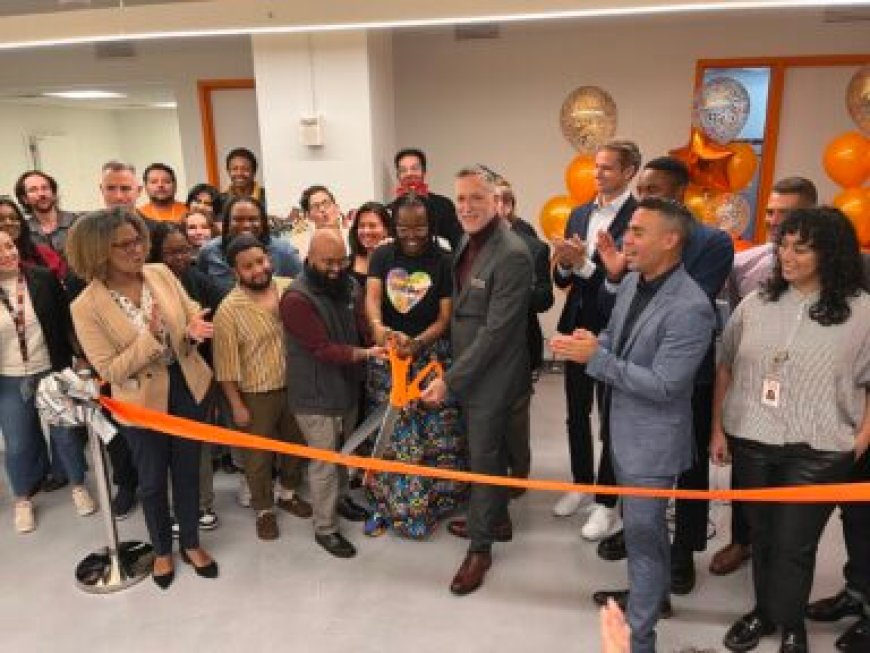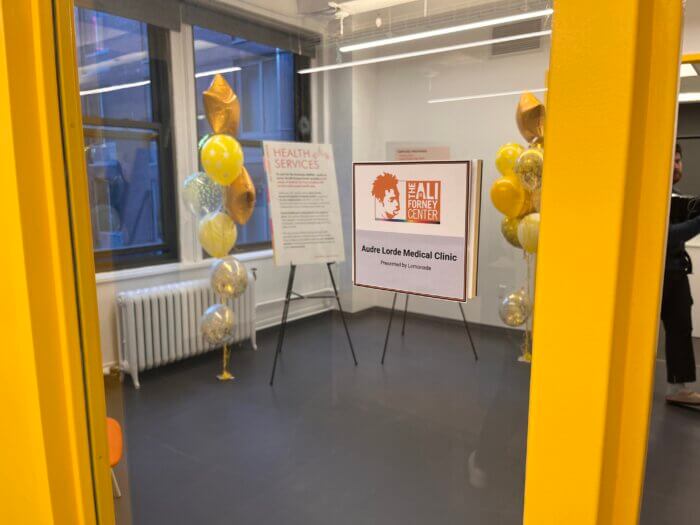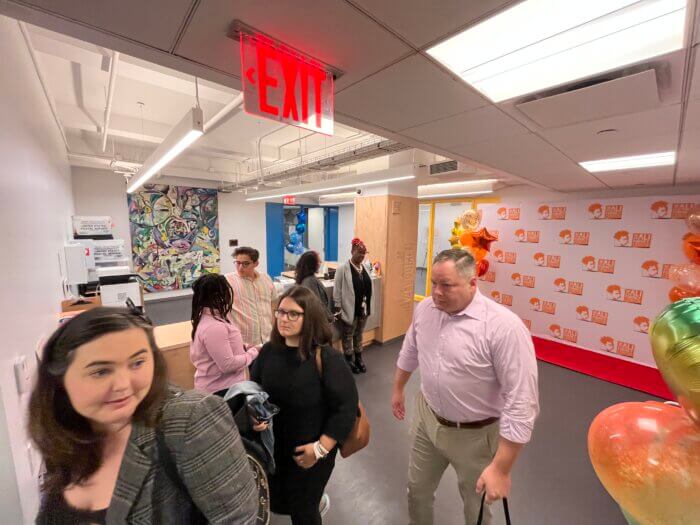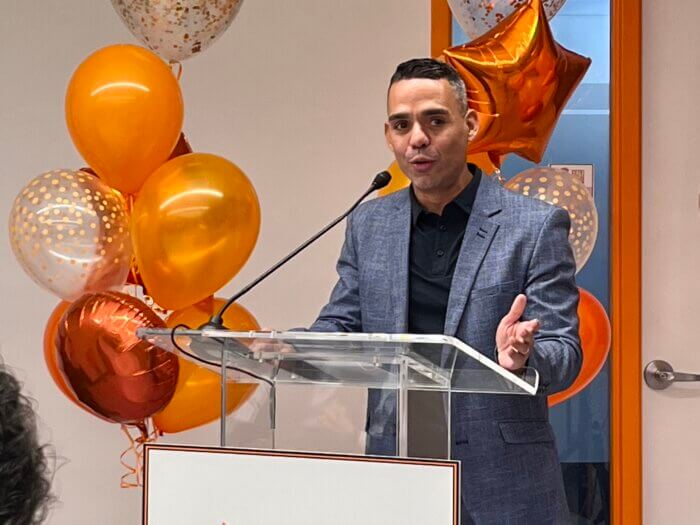Ali Forney Center opens new HQ and drop-in center alongside GMHC
The Ali Forney Center (AFC), the nation’s largest organization serving LGBTQ homeless youth, hosted a ribbon-cutting ceremony on Sept. 27 to announce the opening of a new 24-hour drop-in center and headquarters in the same building as GMHC at 307 West 38th Street in Manhattan. AFC’s new location includes 30,000 square feet of office space … Read More

The Ali Forney Center (AFC), the nation’s largest organization serving LGBTQ homeless youth, hosted a ribbon-cutting ceremony on Sept. 27 to announce the opening of a new 24-hour drop-in center and headquarters in the same building as GMHC at 307 West 38th Street in Manhattan.
AFC’s new location includes 30,000 square feet of office space on the second floor in addition to a drop-in center that will encompass the entire third floor of the building. Youth between the ages of 16 and 24 will now be able to utilize a broader range of on-site services, including medical and mental healthcare, substance use counseling, career education, meals, and overnight programming, according to AFC. Members will also benefit from the close proximity to GMHC, which is a non-profit providing services to people affected by HIV/AIDS.
Another organization in the building is NAMI-NYC, which provides mental health classes, support groups, family mentoring, as well as a peer-to-peer LGBTQ class.
The new space replaces AFC’s former headquarters, which was located at 224 West 35th Street. The extra square footage is critical for clients, according to AFC’s executive director, Alex Roque, who said his organization has witnessed a 20% uptick in demand since 2016.

“This move will allow us to keep pace with the increased need for our services, allowing us to double the medical, mental health, and overall care spaces we can offer,” said Roque, who was a Gay City News Impact Award recipient last year.
AFC, named after a gender non-conforming youth who was murdered in 1997, was founded in 2002 by former executive director Carl Siciliano. The organization started with just six beds, but now serves more than 2,000 people annually and provides over 70,000 meals per year.
Dozens of people visited the drop-in space for the ribbon-cutting ceremony. A handful of elected officials were in attendance, including Bronx City Councilmember Althea Stevens and three out lawmakers: Assemblymember Tony Simone of Manhattan and Councilmembers Erik Bottcher of Manhattan and Chi Ossé of Brooklyn.
Among others on hand included Raquel Willis, an activist and author whose book, “The Risk It Takes to Bloom: On Life and Liberation,” was on display at the drop-in center. Willis spoke of growing up in Augusta, Georgia, wondering what would have happened if her parents were not accepting when she came out.
“In Augusta, Georgia, as you could imagine, there weren’t places like AFC,” Willis said. “I tip my hat to you all for creating a haven for folks who do, unfortunately, get kicked out just for being their brilliant, amazing, beautiful selves and living in all of their glory as queer and trans young people.”

Multiple speakers at the event expressed astonishment over the new space. Stevens, speaking at the podium, acknowledged the gravity of AFC’s work.
“Moving to this space is absolutely amazing because that means [AFC] will be able to serve young people, save more lives, and really transform this city,” Stevens said.
Others reflected on the years-long fight for LGBTQ homeless youth — a fight that continues today. More than a quarter, or 28%, of LGBTQ youth in The Trevor Project’s 2021 survey said they were homeless or experienced homelessness in the past.
“The truth is that it has taken a long time to get the city to recognize that queer youth needed their own services,” Bottcher said. “It took a long time to get through to the city about that, and for a long time, we were told that we already had infrastructure for homeless youth — that they should go to the existing shelters.”
Roque remembered a time when the Ali Forney Center had a small drop-in center in Chelsea that could only accommodate 20 clients and was constrained by a 5 p.m. cutoff on weekdays.
“At Friday at 5 p.m., we would close our doors and we wouldn’t see our community — our clients — again until Monday at 9 a.m.,” Roque said. “This was before LGBTQ youth became a buzzword in our community.”

Roque said he is not proud of that history because the limited schedule ended up having a devastating impact on clients who had to be pushed out at a time when they were in need.
“It’s that broken pride that gives me the courage and boldness to have this vision that says we need to be a 24-hour drop-in center,” Roque said.
Roque made news early this year when he refused to budge after the city announced youth and young adults were barred from sleeping overnight at drop-in centers. He told the New York Times the city would have to “shut us down and put me in handcuffs” before he would agree to follow the policy, underscoring the urgency of the issue of youth homelessness as well as the demand facing AFC.
“Ali Forney, in the last few years, has helped thousands,” Bottcher said. “I know that for decades and decades, people are going to come back here.”
Watch a video about the ribbon-cutting ceremony below:

 Mark
Mark 





